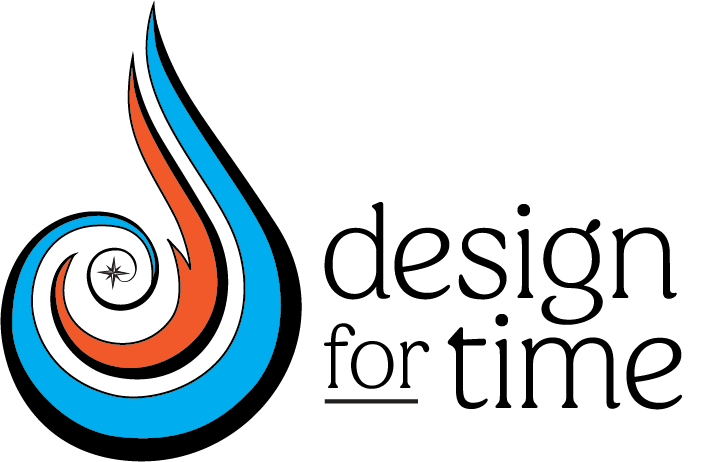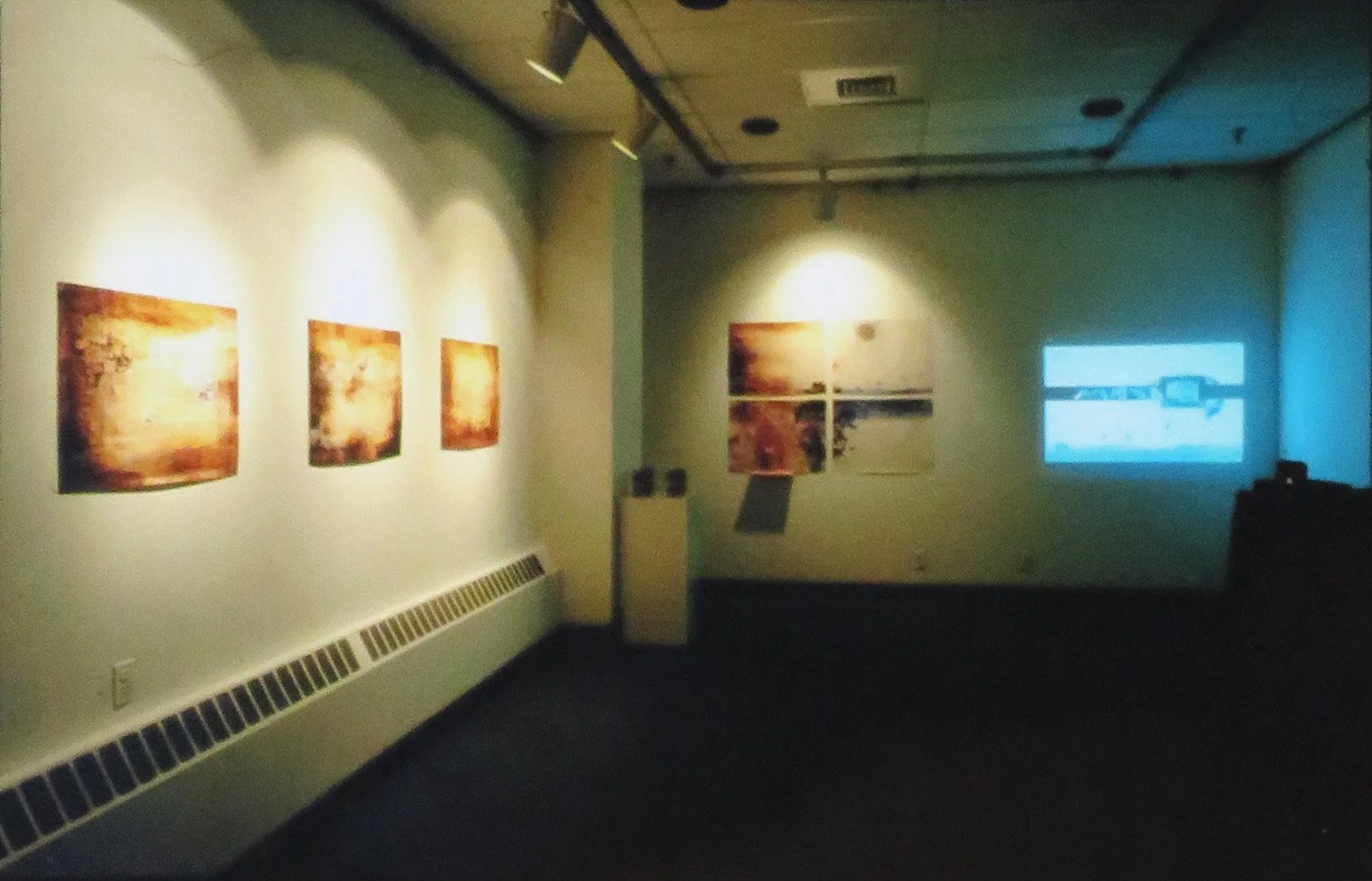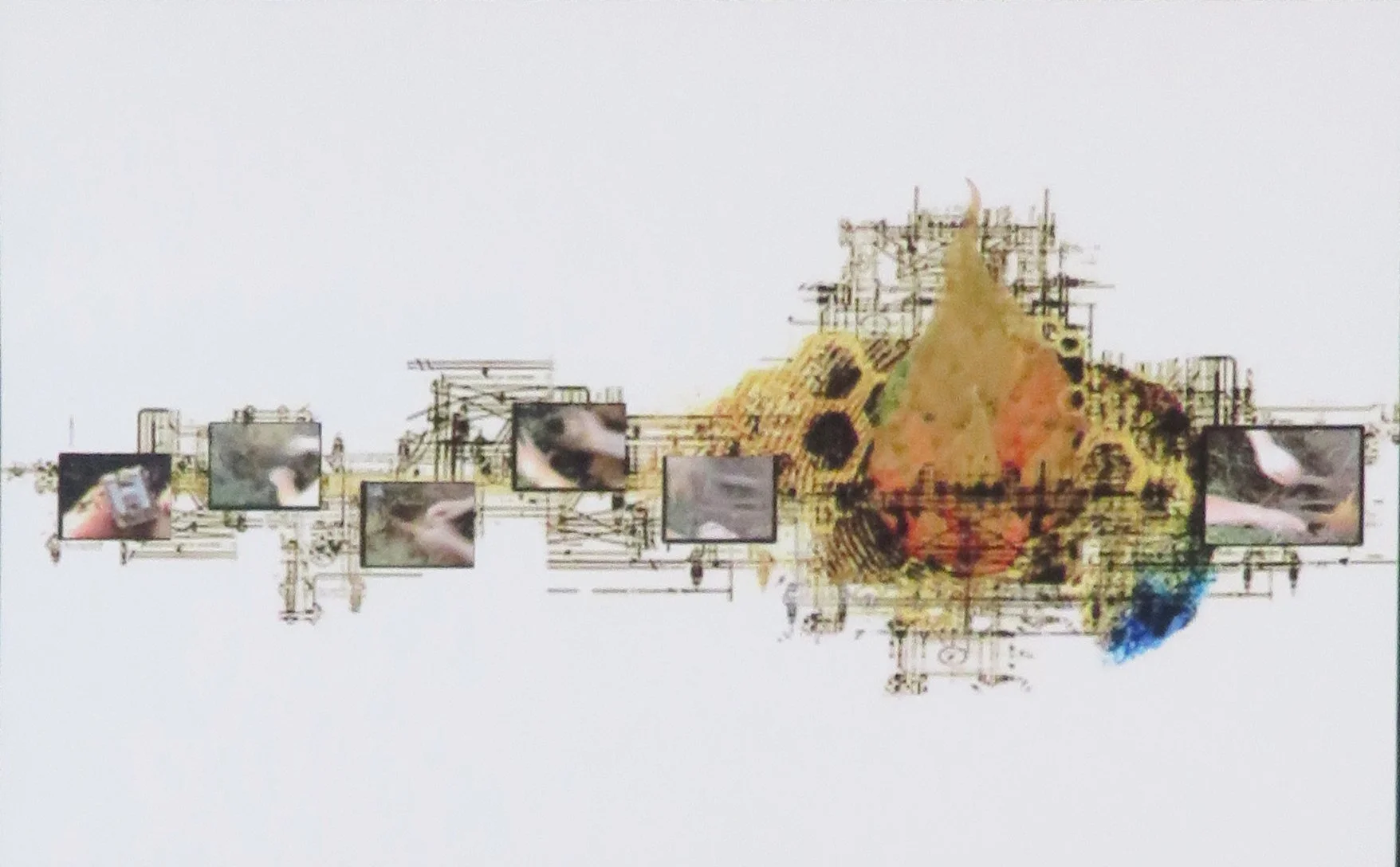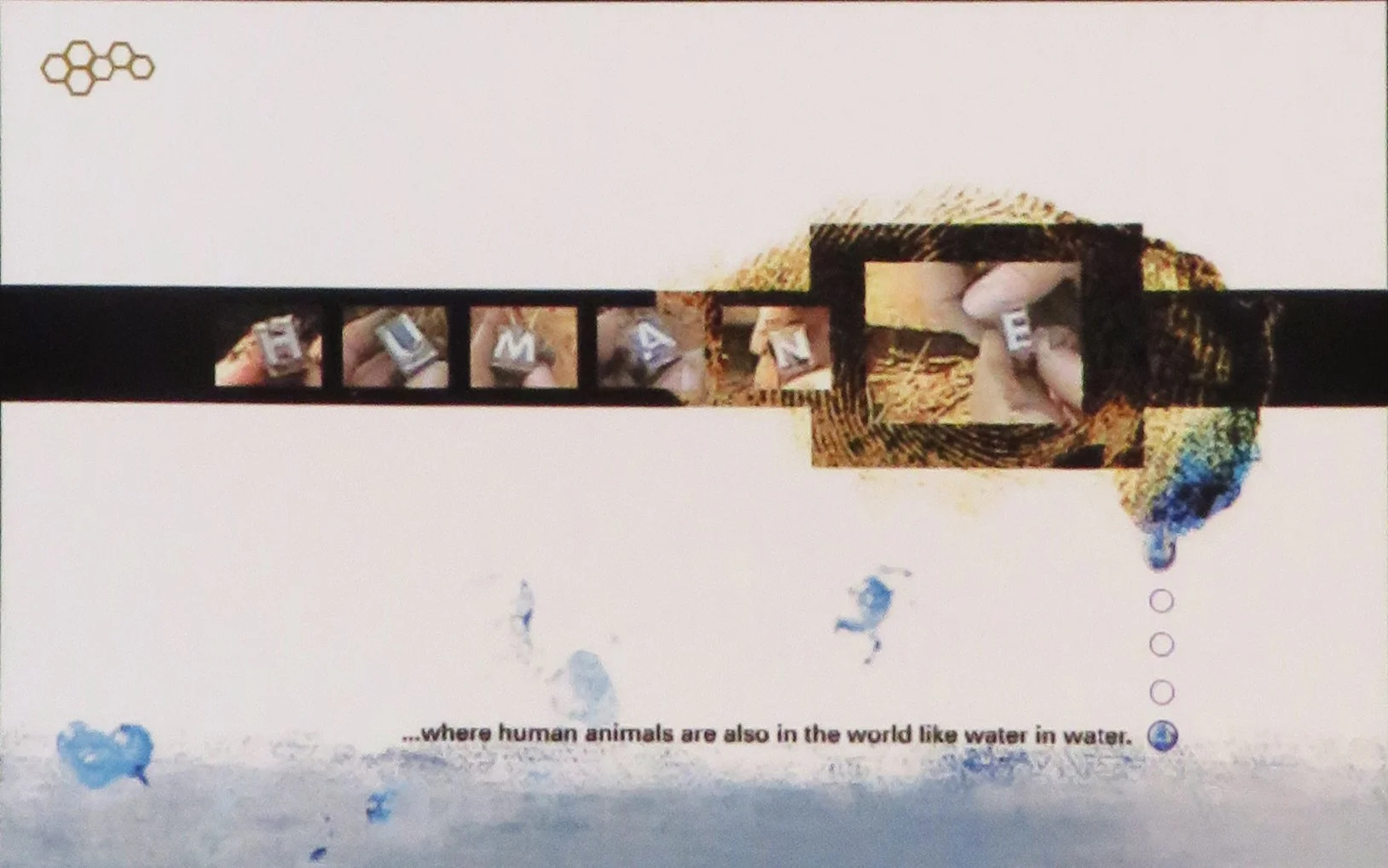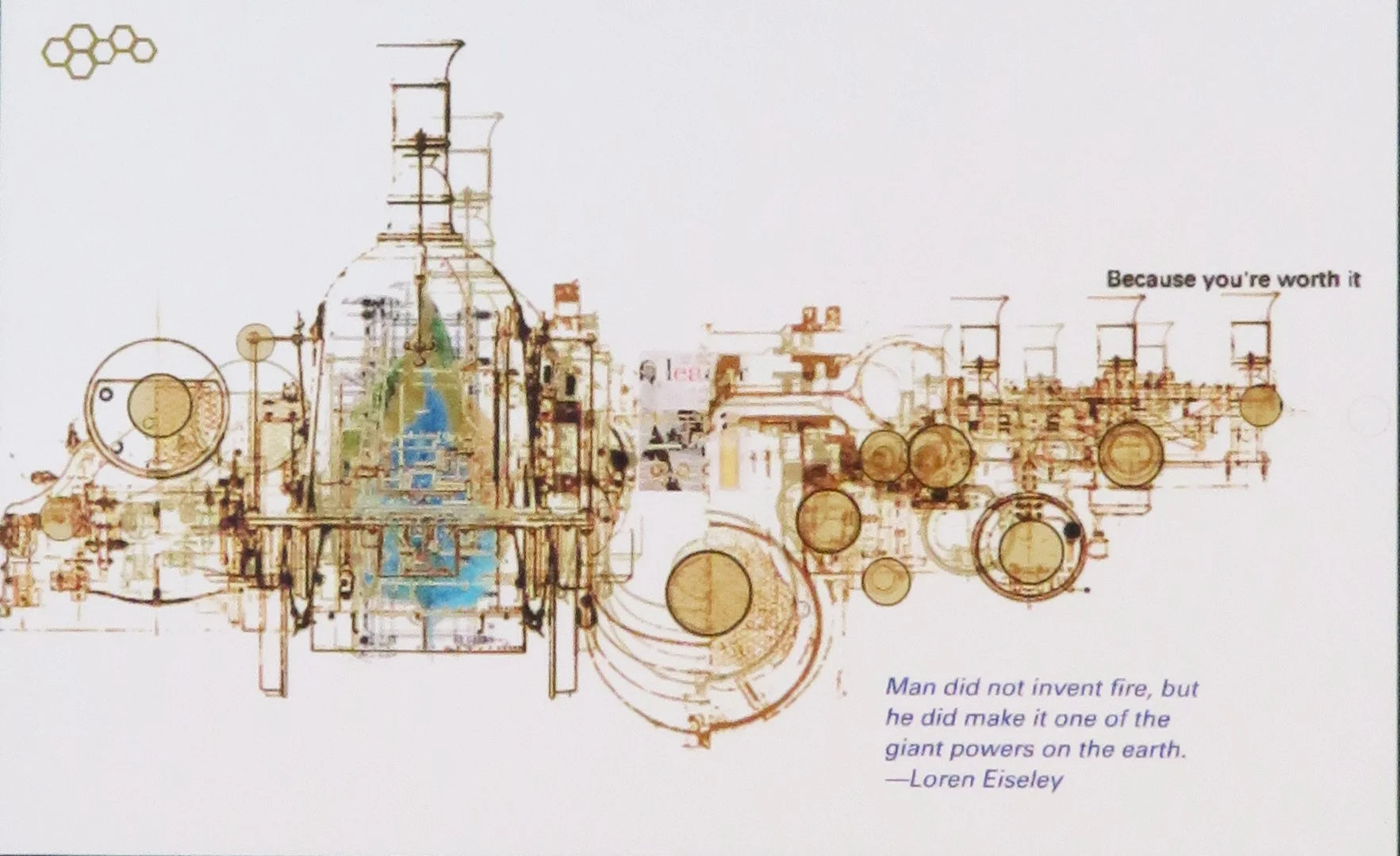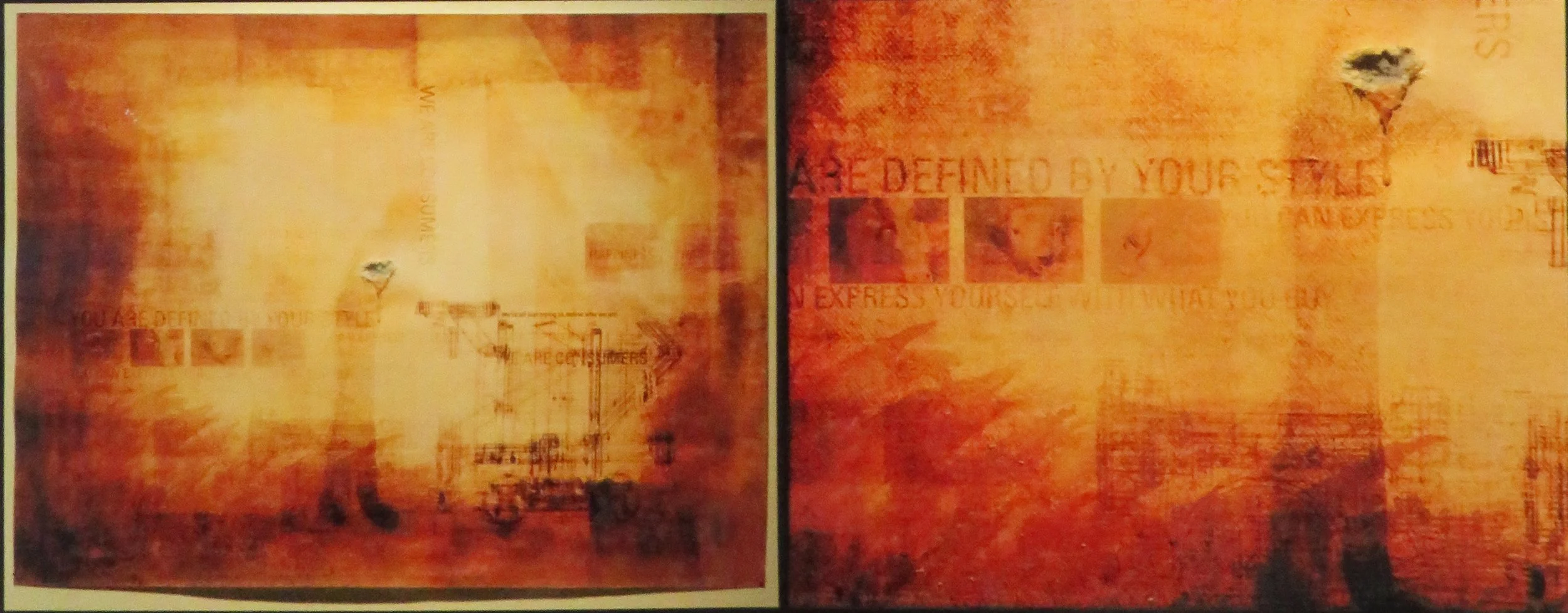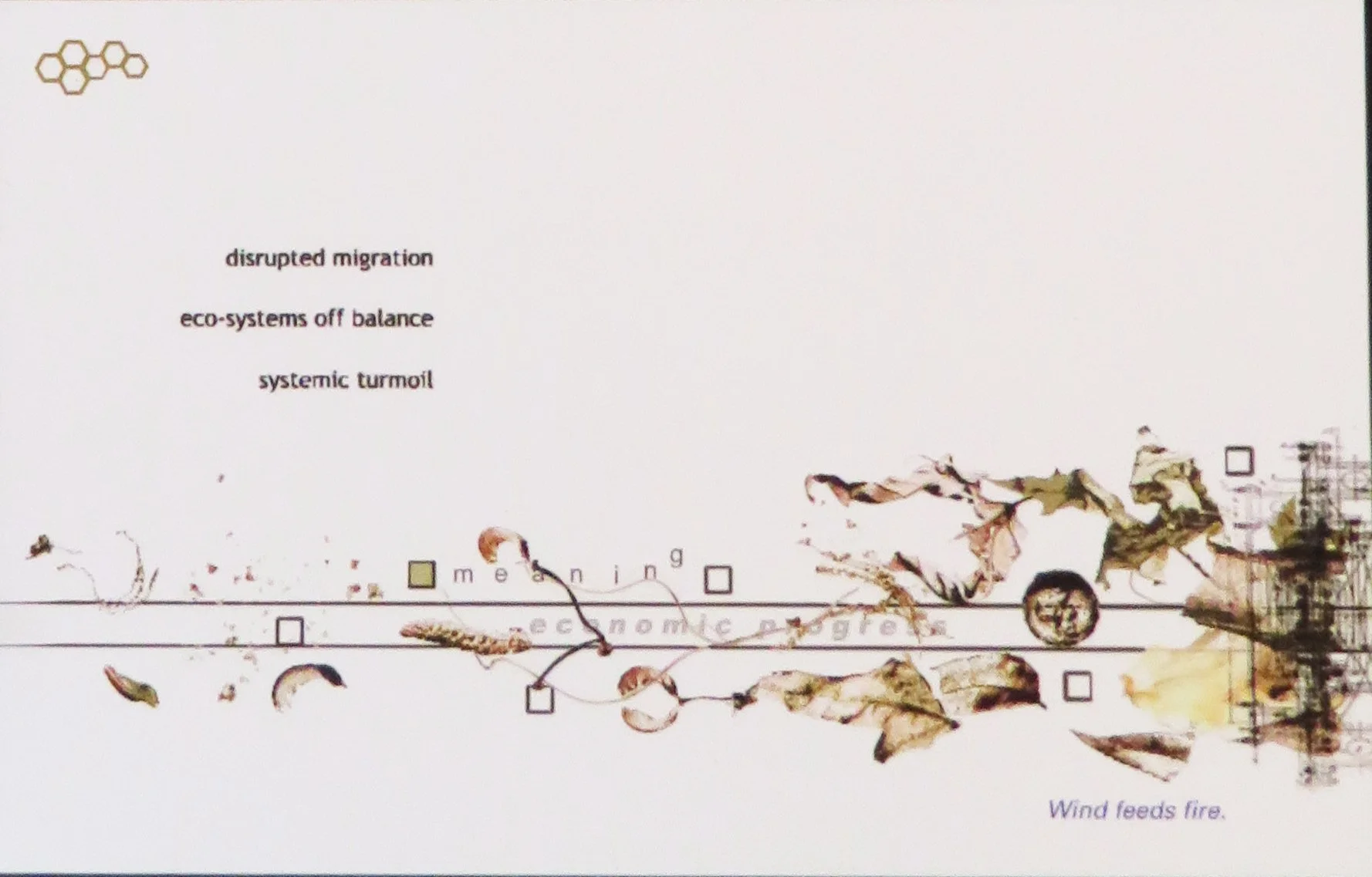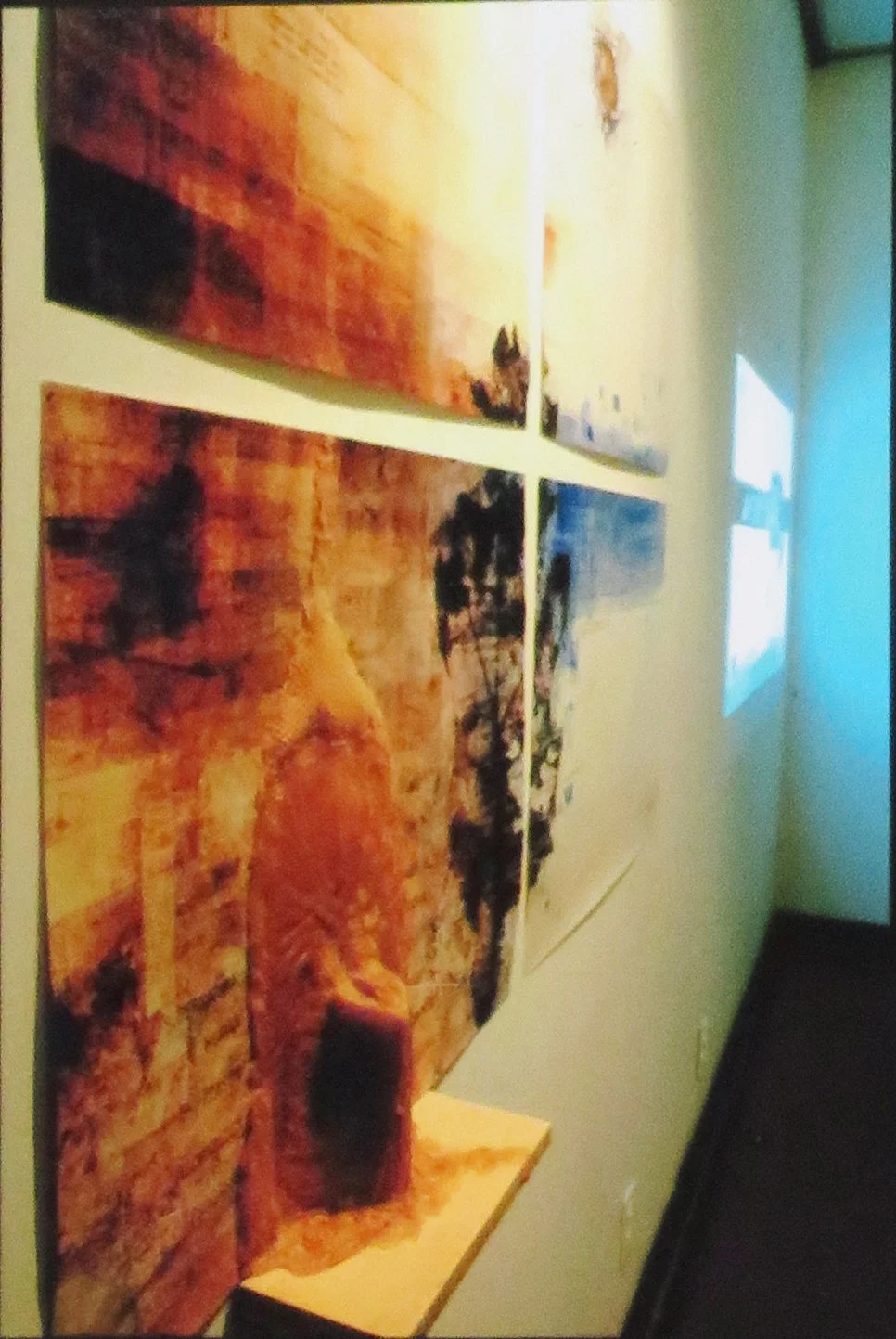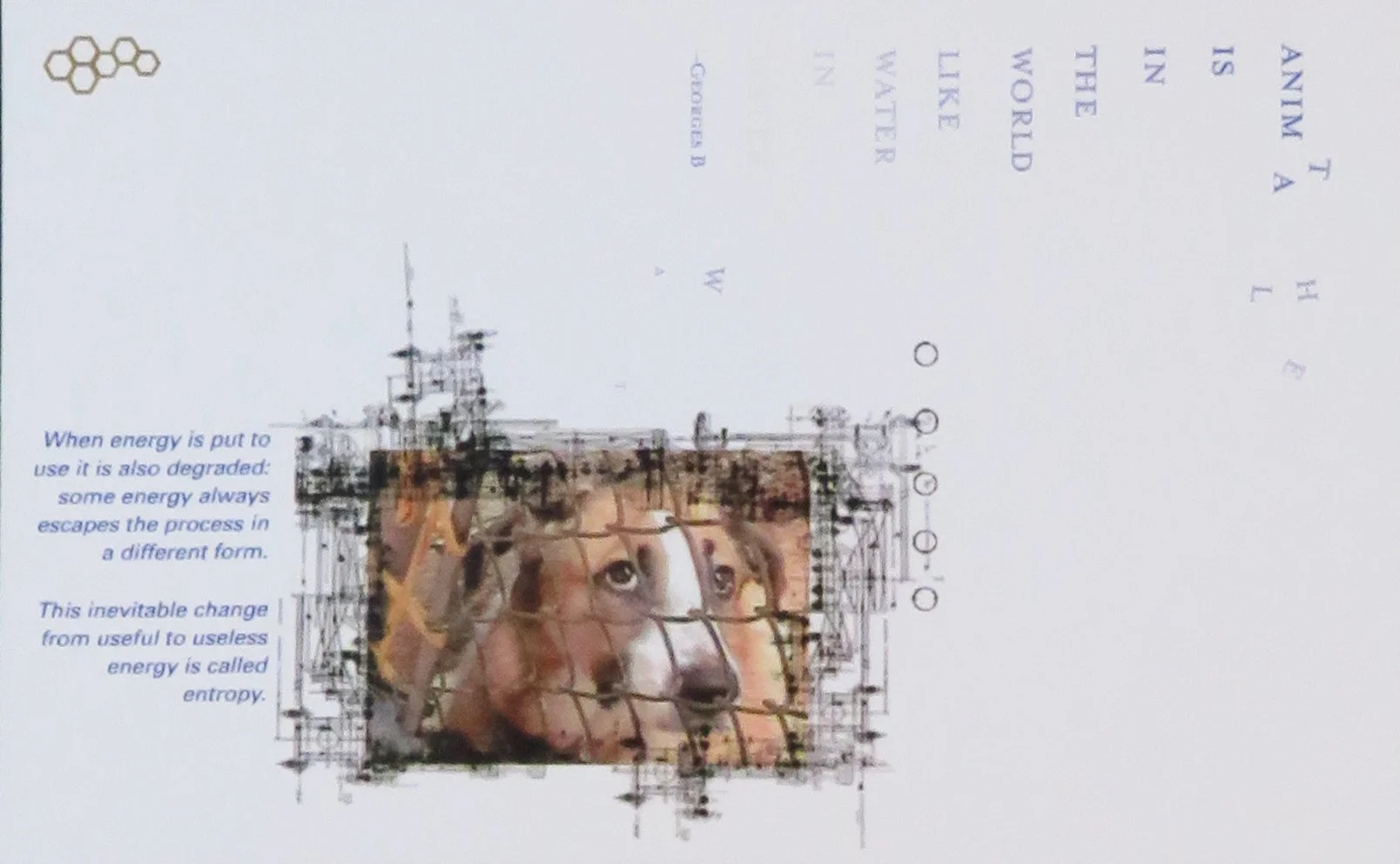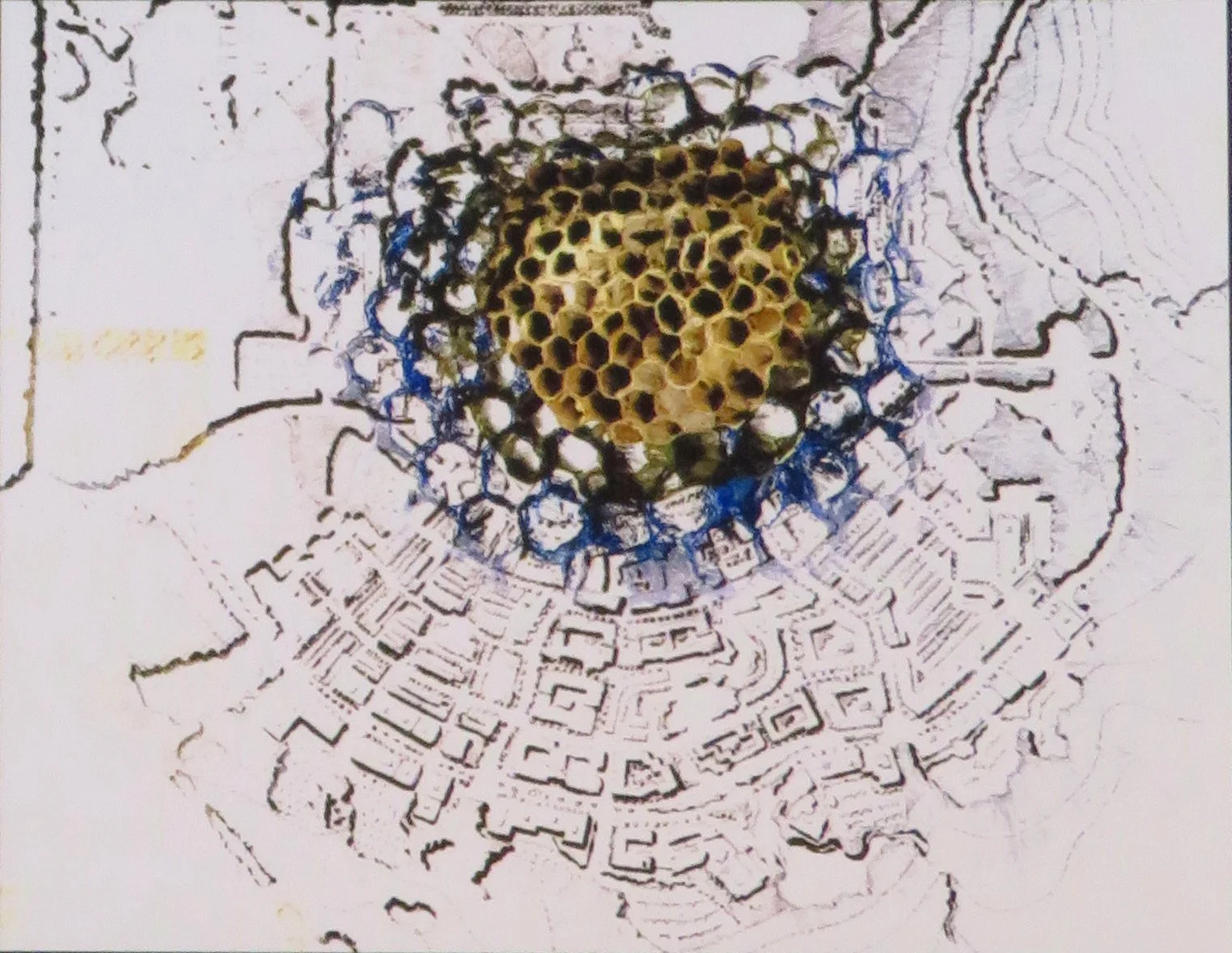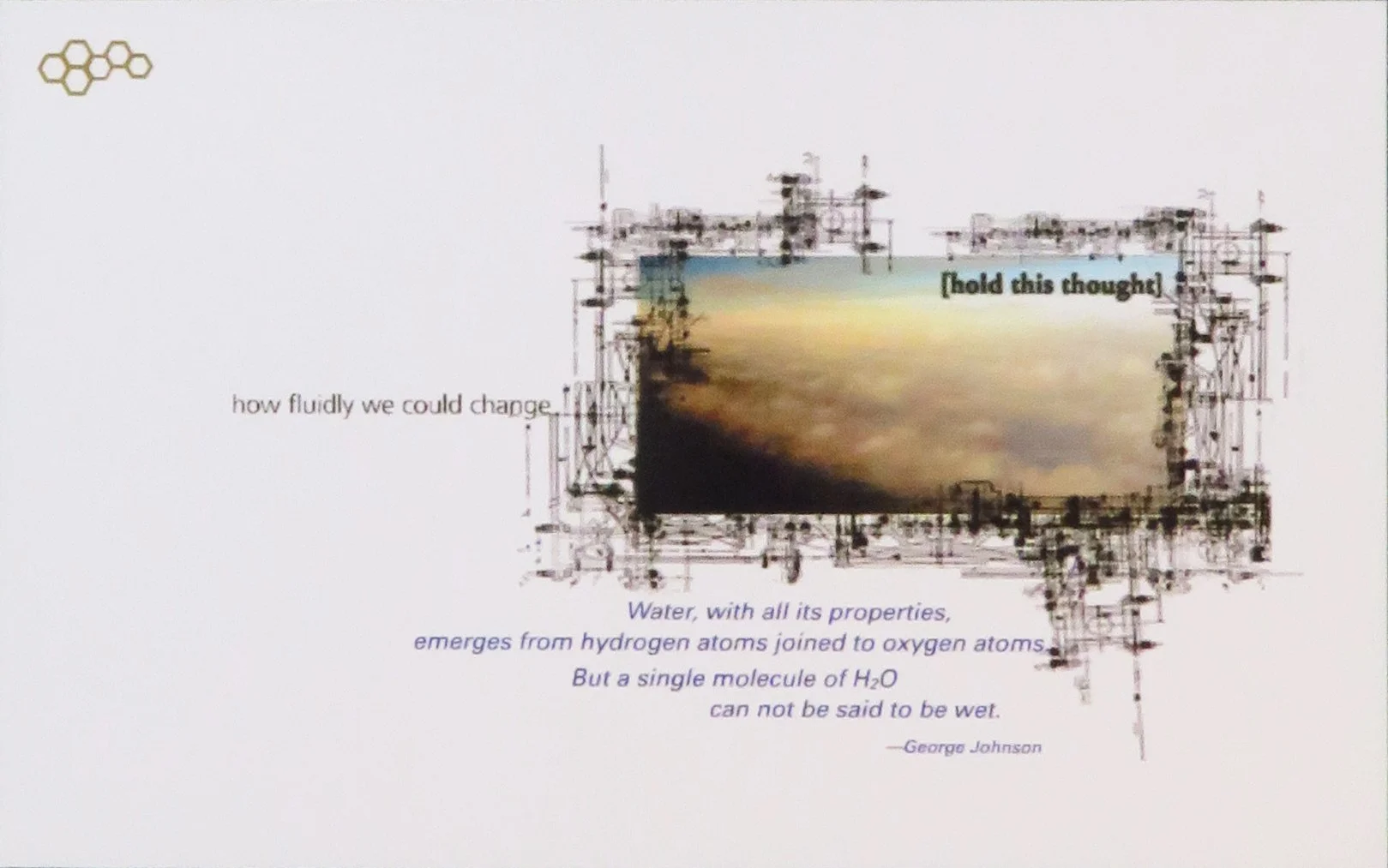MFA thesis exhibition (2001)
University of Memphis
Human | e
The field of graphic design dwells in the vast universe of visual culture and media messages that surrounds us. Our work plays a role in how brands, stories, data, organizations, signs, symbols, products, information and beliefs are presented, communicated and perceived. A graphic designer’s skills provide access to be part of creating art, education, function, propaganda, even whole ideological systems. It’s not a stretch to say our field is essential in the creation of culture.
As such, it is important for the educated graphic designer (and everyone) to develop not only creative problem-solving skills, but also rigorous critical thinking skills. We must understand the layers of possible meanings and interpretations for our audiences. We must understand the history of how messages create and transform beliefs. We must understand our role in the system of mass media, so that we can use our skills to encourage actions that foster the best values for our culture and future.
This is my philosophy about the education of a graphic designer (and education in general, really), which was an important thread in my MFA program. For my thesis work and exhibition, I chose to look at a problem I see around me today, and to delve into the roots of the underlying beliefs that support that problem. I was drawn to a very broad topic, anchored by an essential question:
How did my culture lose the “e” in humane, as we formed our understanding of what it means to be human?
This question led me through religions, sciences, philosophies, governments, economics, technologies, environmentalism, activism and the arts. As I worked to cull out certain threads, I created a multi-page interactive, animated digital projection, several digital prints on canvas, and some three-dimensional elements for display in my MFA thesis exhibition.
The images presented here are stills, without their animation or interactivity. I hope they nevertheless carry some of the meaning my work intended to convey. One page shows six small videos of my hands digging in the earth, the first five discovering letterpress letters: H, U, M, A, N. The sixth box just shows continual digging (for the E). One page shows the wind that trails “economic progress” with buttons that reveal haiku poems (usually about nature’s beauty), about the consequences of economic progress. One page deals with control over animals, one page is about the system of marketing and commercialization, and one page is about our individual responsibility to find ways to be part of the solution.
Throughout the pages are threads of the beautiful idea that we are not above the natural world, but part of it, the way animals are like water in water. In one page, my digging hands discover the “E.” (I also had a real metal letterpress E on the gallery floor, that people could physically touch.)
The canvas prints continue these themes exploring how these beliefs formed, and some of the canvas prints include tears in the surface—revealing a truth underneath the misleading messages that I feel have fostered our harmful beliefs.
As symbols of the larger systemic problem, I also created labels for candle products branded the “Wilderness Series” with scents titled mystery, wisdom, wonder, and inspiration. These tie into a theme throughout my thesis work about the way our culture commercializes anything, even our deepest feelings that come from connecting with nature.
We are trapped in a system that creates harm to the world that we are part of. And the system thrives on the belief that the human condition entitles it to do what it does.
Media messages encourage us to purchase commercial products to define ourselves, feel good, and attempt to fill the vast emptiness and loss we feel because of our disconnect with nature.
My hope, ultimately, is that we all continue to think critically about our impact, and to take intentional steps to create the world we would love to see. Creativity is powerful, so let’s use it for the healing the world needs. And when we feel lost, may we remember to find the wisdom of nature outside, instead of in a store.
